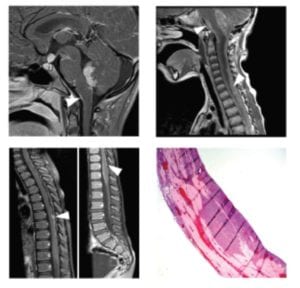Already funded by the National Cancer Institute/National Institutes of Health!
Alveolar rhabdomyosarcoma (aRMS) is generally not survivable when metastatic. However, this disease does respond to chemotherapy in most cases. The driving clinical challenge is to overcome recurrence after chemotherapy and radiation. We recently reported in PLoS Genetics that the Pax3:Foxo1 oncogene present in most aRMS cases facilitates checkpoint adaptation (high tolerance of double-stranded DNA breaks or mitotic catastrophe) [highlighted in Nature Reviews Cancer].
The gap attributed to Pax3:Foxo1 mediated treatment resistance is estimated to be up to a 50% difference in survival over 10 years. Genetic knockdown of Pax3:Foxo1 improves chemotherapy & radiation sensitivity and reduces tumor re-establishment [PMID 24453992]. Remarkably, however, Pax3:Foxo1 can also be pharmacologically silenced at the mRNA and protein levels by entinostat, an adult phase II histone deacetylase inhibitor studied for ER+ breast cancer. In our studies, entinostat dramatically improved sensitivity to the rhabdomyosarcoma chemotherapeutics & radiation (see our publications in Genes & Development and Science Signaling). The Phase I study is completed (clinicaltrials.gov NCT02780804) … the race is on to generate the data enabling the Phase II clinical trial. But can we do better? We believe we can by study of SMARCA4 and its inhibitors.





